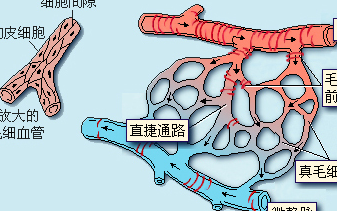The “Ling Shu · Chapter on the Main Organs” states: “When the will is harmonious, the spirit is focused, the soul does not scatter, regret and anger do not arise, and the organs are not invaded by evil.” The “Plain Questions · The Great Treatise on the Correspondence of Yin and Yang” also mentions: “Excessive anger harms the Yin, excessive joy harms the Yang, counterflow of pathogenic Qi, full pulse leading to dispersion, lack of moderation in joy and anger, excessive cold and heat, then life is not stable.” The “Huangdi Neijing” also mentions that anger harms the liver, joy harms the heart, worry harms the lungs, overthinking harms the spleen, and fear harms the kidneys. This indicates that traditional Chinese medicine attaches great importance to the influence of emotions and mentality on health in the etiology and treatment of diseases. So, how do emotions and mentality affect health? What is the scientific rationale behind it?
In the 7th chapter on blood circulation (page 245) of “Human Anatomy and Physiology” compiled by Yushiyuan, factors affecting microcirculation blood flow are described as follows:
1. Arterioles are resistance vessels before capillaries, acting as the “main gate” in microcirculation, and their diameter changes determine the blood flow in microcirculation. Their smooth muscles are mainly influenced by sympathetic vasoconstrictor nerve fibers and active vasoconstrictor substances in the body (such as catecholamines, angiotensin, vasopressin, etc.).
2. Post-arterioles and precapillary sphincters before capillaries have a single layer of smooth muscle cells in their walls, and the latter has smooth muscle surrounding its walls, acting as the “gate valve” in microcirculation, and their opening and closing directly affect the blood flow in true capillaries. Their contractile activity mainly depends on the metabolic level of local tissues.
3. Venules are resistance vessels after capillaries, acting as the “rear gate” in microcirculation. Constriction of venules increases the resistance after capillaries, on one hand, elevating capillary blood pressure, favoring the production of tissue fluid; on the other hand, reducing the venous return of heart blood volume. The smooth muscles of venules are also influenced by sympathetic vasoconstrictor nerve fibers and vasoconstrictor substances in body fluids.
Regardless of whether the views in the text are correct or not, the core of this passage is: Arterioles are resistance vessels before capillaries, acting as the “main gate” in microcirculation; post-arterioles and precapillary sphincters are resistance vessels before capillaries, acting as the “gate valve” in microcirculation; venules are resistance vessels after capillaries, acting as the “rear gate” in microcirculation. This is certain.
It is noteworthy that the smooth muscles and smooth muscle cells of pre-arterioles, post-arterioles, capillaries, and venules are all innervated by sympathetic vasoconstrictor nerve fibers, and the excitation of the sympathetic nervous system is closely related to emotions and mentality. That is, under strong stimuli of emotions like excessive joy, anger, worry, sorrow, fear, the tense nervous system stimulates the excitation of the sympathetic nervous system, leading to vasoconstriction of microcirculation vessels, reducing or even interrupting blood flow in microcirculation.
A decrease in blood flow in microcirculation will inevitably affect the normal metabolism of tissue cells. The interruption of blood flow in microcirculation will inevitably lead to the death of affected tissues, therefore,
Traditional Chinese culture emphasizes cultivation of the mind. Whether it is Buddhism, Taoism, medicine, Confucianism, martial arts, or various health cultivation methods, they all emphasize mind cultivation. Countless facts prove that before insomnia, depression, epilepsy, schizophrenia, and the onset of serious illnesses, there have been emotional fluctuations of joy, anger, worry, thoughts, sadness, fear, and shock, showing that the influence of emotions and mentality on health cannot be underestimated.


